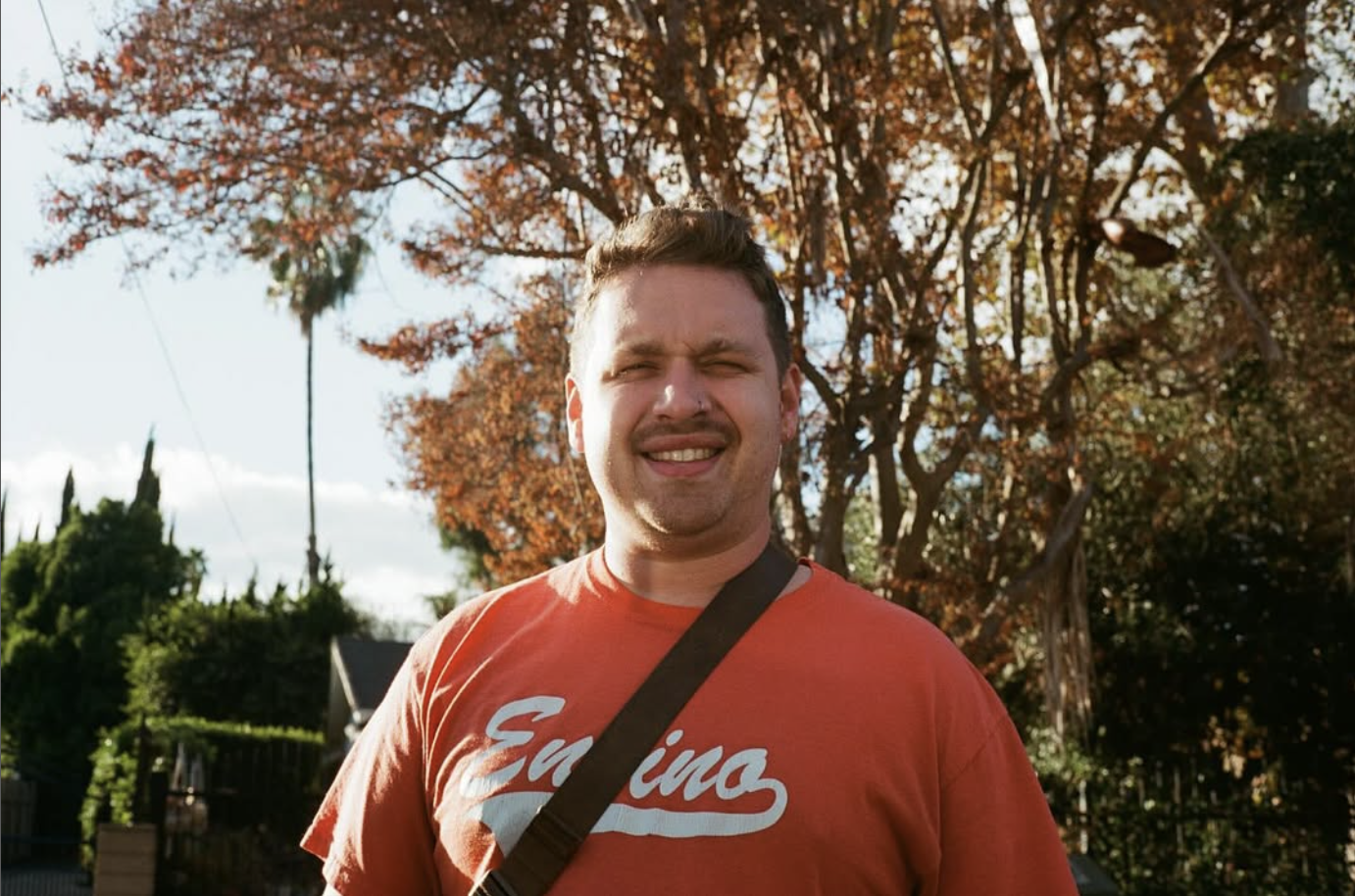The Vulnerable Indie Pop of Slimdan
How a kid from a tight-knit Orthodox community learned to blend Judaism, rebellion, and humor into pop music that’s uniquely his.
“I ate a hotdog and was waiting for God to kill me. And then I didn’t die.” With humor, slimdan, Danny Silberstein, cuts to the heart of Jewish guilt. Caught between the weight of religious duty and the pull of personal rebellion, he finds a new sense of personal freedom and creates music that channels the tension of his upbringing, blending faith, self-doubt, and a fierce desire for individuality. His sound becomes a reflection of his journey—both a rebellion and a reckoning. Slimdan’s music lives in the ever-present dimension of his Jewish identity and the shared experience of diasporic Jews. His upbringing in the Modern Orthodox community of Sherman Oaks, Los Angeles, had a profound impact on his life and music. He describes it as being similar to a "small town in Texas" where everyone knows everyone's business. His close-knit environment also limited his exposure to different perspectives, as he had never had a non-Jewish friend before attending Berklee College of Music.
Slimdan admits that this transition to a secular world was "terrifying". When he left for Berklee College of Music, the culture shock was real. “I basically hid in my room the first year,” he laughs. “I was so out of my element.” But as he stepped into the unknown he also began to explore a world beyond his upbringing—one where his first non-Jewish friend came from a totally different background. “It’s like the whole shebang is that it doesn’t matter where you’re from,” he reflects. Although he majored in songwriting, his musical journey extended beyond the classroom. He experimented with different genres, including a folk-inspired solo project under his given name, Danny Silberstein, while at Berklee. Over time, slimdan began to emerge from his shell, fueled by curiosity about the world around him. “Just like everybody else, it’s a common thing when you go to college.” He spent his first year living with a drummer from a Black church and a white kid from Michigan.
“You start to get really curious, and you start to learn about other people’s cultures. You realize that it’s actually really freaking cool.”
After graduating, he moved back to L.A., where he initially focused on playing in a band while simultaneously exploring commercial songwriting. Slimdan found himself straddling two worlds – the familiar comfort of his Orthodox community and the fast-paced music industry in L.A. He likens this period to living a double life. This blend of experiences ultimately shaped his unique approach to music, allowing him to infuse his Jewish identity with contemporary pop sensibilities.
In August of last year, before he opened for Remi Wolf on the October leg of her “Big Ideas tour” Havurah's Music Director Leah Dunn discovered slimdan’s music at a concert in San Francisco, where he was opening for Ethan Tash. Sitting near the front, Leah was amazed by Silberstein’s set, and afterward, couldn’t stop thinking about the memorable Demo track "Caesar Salad," which captures the fleeting essence of King Caesar’s rule with the line, “One day you can own the world, the next day you’re a salad.” In fact, the entire song lethargically muses about iconic figures as grocery store items over droning acoustic plucking. Dressed in an almost-painful irony, slimdan explores what it means to be a hero and how fandoms shape collective memory. Even slimdan himself eventually becomes self-referential, imagining himself as a sandwich in a deli—a fleeting, consumable thing, reduced to an order on a menu, forever subject to the whims of the crowd.
As it turns out, slimdan’s musings about the fleeting nature of identity don’t end at the deli counter. As much as slimdan dissects the absurdity of life and fame, his own cultural background is never far from the surface. In "Celebrity Lookalikes” he establishes a Jewish perspective within the pop music context. The song's opening line, "Two Jews just barely getting by / We didn’t speak the language," immediately strikes a chord in the ears of Jewish listeners because his direct inclusion of the word "Jew" is a reference rarely seen in mainstream pop music.
Slimdan acknowledges that he sought reassurance from his longtime collaborator, Ryan Linvill, about using this line, indicating his awareness of its potential impact. Here he creates an implicit dialogue with Paul Simon’s "Hearts and Bones." In Simon’s song, the lyric “And one half wandering Jews, free to wander wherever they choose” reflects the tension between freedom and exile, central themes in Jewish historical and cultural narratives. Slimdan's lyrics offer a modern, intimate reimagining of this dynamic, contextualized within the challenges of contemporary travel and cultural dislocation. The song also subtly touches upon Jewish anxieties in foreign lands by incorporating words like "train" and "police," evoking historical events like the Shoah without explicitly dwelling on them. The narrative focuses on slimdan's honeymoon experience in Europe, where he and his wife encountered logistical challenges while traveling by train. Despite these hurdles, the song ultimately celebrates the joys of falling in love and the quiet moments shared between two people, evoking Paul Simon's own meditation on wandering and belonging, where identity is both a personal journey and a collective memory, shaped by the past but always evolving with the present.
Looking ahead, Slimdan continues to evolve, blending personal storytelling with broader cultural resonance. Fans can catch him on tour in February, bringing his unique perspective and sound to audiences across the country.
Follow slimdan: Instagram, Spotify


